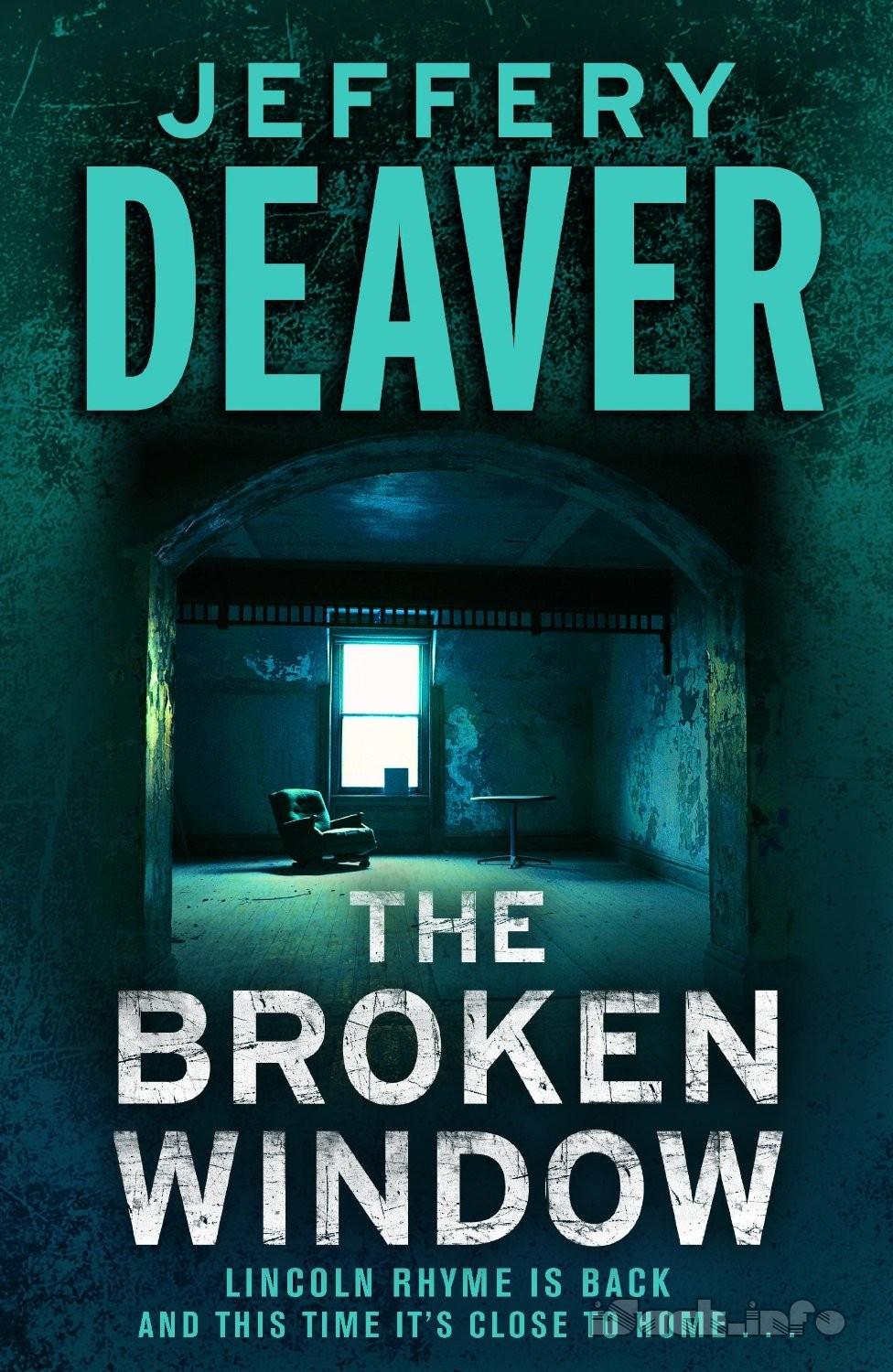Part II: Transactions - Sunday, May 22 - Chapter 2
Y
ou often hear the old legend that our body is worth $4.50, stripped for parts. Our digital identity is worth far more.—ROBERT O’HARROW, JR.,!!!No Place to Hide
The trail had led from Scottsdale to San Antonio to a rest area in Delaware off Interstate 95, filled with truckers and restless families, then finally to the improbable destination of London.
And the prey who’d taken this route? A professional killer Lincoln Rhyme had been pursuing for some time, a man he’d been able to stop from committing a terrible crime, but who’d managed to escape from the police with only minutes to spare, “waltzing,” as Rhyme had put it bitterly, “out of the city like a goddamn tourist who had to be back at work Monday morning.”
The trail had dried up like dust and the police and FBI could learn nothing about where he was hiding or what he might be planning next. But a few weeks earlier Rhyme had heard from contacts in Arizona that this very man was the likely suspect in the murder of a U.S. Army soldier in Scottsdale. Leads suggested he’d headed east—to Texas, then Delaware.
The name of the perp, which might have been real or a cover, was Richard Logan. It was likely that he came from the western portion of the United States or Canada. Intense searches turned up a number of Richard Logans, but none fit the profile of the killer.
Then in a burst of happenstance (Lincoln Rhyme would never use the word “luck”), he’d learned from Interpol, the European criminal-information clearinghouse, that a professional killer from America had been hired for a job in England. He’d killed someone in Arizona to gain access to some military identification and information, met with associates in Texas and been given a down payment on his fee at some truck stop on the East Coast. He had flown to Heathrow and was now somewhere in the U.K., the exact location unknown.
The subject of Richard Logan’s “well-funded plot which originated at high levels”—Rhyme could only smile when he read the polished Interpol description—was a Protestant minister from Africa, who’d run a refugee camp and stumbled on a massive scam in which AIDS drugs were stolen and sold and the money used to purchase arms. The minister was relocated by security forces to London, having survived three attempts on his life in Nigeria and Liberia and even one in a transit lounge at Malpensa airport in Milan, where the Polizia di Stato, armed with stubby machine guns, scrutinize much and miss very little.
The Reverend Samuel G. Goodlight (a better name for a man of the cloth Rhyme couldn’t imagine) was now in a safe house in London, under the watchful eye of officers from Scotland Yard, the home of the Metropolitan Police Service, and was presently helping British and foreign intelligence connect the dots of the drugs-for-arms plan.
Via encrypted satellite calls and e-mails flying around several continents, Rhyme and an Inspector Longhurst of the Metropolitan Police had set up a trap to catch the perp. Worthy of the precise plots that Logan himself crafted, the plan involved look-alikes and the vital assistance of a larger-than-life former arms broker from South Africa who came with a network of curried informants. Danny Krueger had made hundreds of thousands selling weapons as efficiently and dispassionately as other businessmen sell air conditioners and cough syrup. But a trip to Darfur last year had shaken him badly, seeing the carnage his toys caused. He’d given up the arms trade cold and had resettled in England. Others on the task force included officers from MI5, as well as personnel from the London office of the FBI and an agent from France’s version of the CIA: La Direction Générale de la Sécurité Extérieure.
They hadn’t known even the region of Britain in which Logan was in hiding, planning his hit, but the boisterous Danny Krueger had heard that the killer would be making his move in the next few days. The South African still had many contacts in the international underground and had put out hints about a “secret” location where the meetings between Goodlight and the authorities would take place. The building had an exposed courtyard that was a perfect shooting zone for the killer to assassinate the minister.
It was also an ideal place to spot and take down Logan. Surveillance was in place and armed police, MI5 and FBI agents were on twenty-four-hour alert.
Rhyme was now sitting in his red battery-powered wheelchair on the first floor of his Central Park West town house—no longer the quaint Victorian parlor it had once been, but a well-equipped forensic laboratory, larger than many labs in medium-size towns. He found himself doing what he’d done frequently over the past several days: staring at the phone, whose number-two speed-dial button would call a line in England.
“The phone’s working, right?” Rhyme asked.
“Is there any reason for it not to be?” Thom, his caregiver, asked this in a measured tone, which Rhyme heard as a belabored sigh.
“I don’t know. Circuits overload. Phone lines get hit by lightning. All kinds of things can go wrong.”
“Then maybe you should try it. Just to make sure.”
“Command,” Rhyme said, getting the attention of the voice-recognition system hooked to his ECU—the computerized environmental control unit that substituted in many ways for his physical functioning. Lincoln Rhyme was a quadriplegic; he had only limited movement below the place where his neck was broken in a crime-scene accident years before—the fourth cervical vertebra, near the base of the skull. He now ordered, “Dial directory assistance.”
The dial tone filled the speakers, followed by beep beep beep. This irritated Rhyme more than a nonperforming phone would have. Why hadn’t Inspector Longhurst called? “Command,” he snapped. “Disconnect.”
“Seems to be fine.” Thom placed a coffee mug in the cup holder of Rhyme’s wheelchair and the criminalist sipped the strong brew through a straw. He looked at a bottle of Glenmorangie eighteen-year-old single-malt whisky on a shelf—it was nearby but, of course, always just out of Rhyme’s reach.
“It’s morning,” Thom said.
“Obviously it’s morning. I can see it’s morning. I don’t want any… It’s just…” He’d been waiting for a reason to ride the young man on the issue. “I seem to recall being cut off rather early last night. Two tumblers. Virtually nothing.”
“It was three.”
“If you were to add up the contents, the cubic centimeters, I’m speaking of, it was the same as two small ones.” Pettiness, like liquor, could be intoxicating in its own right.
“Well, no scotch in the morning.”
“It helps me think more clearly.”
“No, it doesn’t.”
“It does. And more creatively.”
“Doesn’t do that either.”
Thom was wearing a perfectly ironed shirt, tie and slacks. His clothes were less wrinkled than they used to be. Much of the job of a quadriplegic’s caregiver is physical. But Rhyme’s new chair, an Invacare TDX, for “total driving experience,” could fold out into a virtual bed, and had made Thom’s job much easier. The chair could even climb low stairs and speed along as fast as a middle-aged jogger.
“I’m saying I want some scotch. There. I’ve articulated my desire. How’s that?”
“No.”
Rhyme scoffed and stared at the phone again. “If he gets away…” His voice faded. “Well, aren’t you going to do what everybody does?”
“What do you mean, Lincoln?” The slim young man had been working with Rhyme for years. He’d been fired on occasion and had quit too. But here he still was. A testament to the perseverance, or perverseness, of both principals.
“I say, ‘If he gets away,’ and you say, ‘Oh, but he won’t. Don’t worry.’ And I’m supposed to be reassured. People do that, you know: They give reassurance when they have no idea what they’re talking about.”
“But I didn’t say that. Are we having an argument about something I didn’t say but could have? Isn’t that like a wife being mad at her husband because she saw a pretty woman on the street and thought he would have stared at her if he’d been there?”
“I don’t know what it’s like,” Rhyme said absently, his mind mostly on the plan in Britain to capture Logan. Were there holes in it? How was security? Could he trust the informants not to leak information the killer might pick up on?
The phone rang and a caller-ID box opened on the flat-screen monitor near Rhyme. He was disappointed to see the number wasn’t a London exchange but closer to home—in the Big Building, cop-speak for One Police Plaza in downtown Manhattan.
“Command, answer phone.” Click. Then: “What?”
From five miles away a voice muttered, “Bad mood?”
“No word from England yet.”
“What’re you, on call or something?” Detective Lon Sellitto asked.
“Logan’s disappeared. He could make a move at any time.”
“Like having a baby,” Sellitto said.
“If you say so. What do you need? I don’t want to keep the line tied up.”
“All that fancy equipment and you don’t have call waiting?”
“Lon.”
“Okay. Something you oughta know about. There was a burglary-murder a week ago Thursday. Vic was a woman lived in the Village. Alice Sanderson. Perp stabbed her to death and stole some painting. We got the doer.”
Why was he calling about this? A mundane crime and the perp in custody. “Evidence problem?”
“Nope.”
“So I’d be interested why?”
“The supervising detective just got a call a half hour ago?”
“The chase, Lon. The chase.” Rhyme was staring at the whiteboard that detailed the plan to catch the killer in England. The scheme was elaborate.
And fragile.
Sellitto brought him out of his reflection. “Look, I’m sorry, Linc, but I gotta tell you, the perp’s your cousin, Arthur Rhyme. It’s murder one. He’s looking at twenty-five years, and the D.A. says it’s an airtight case.”



 ePub
ePub A4
A4